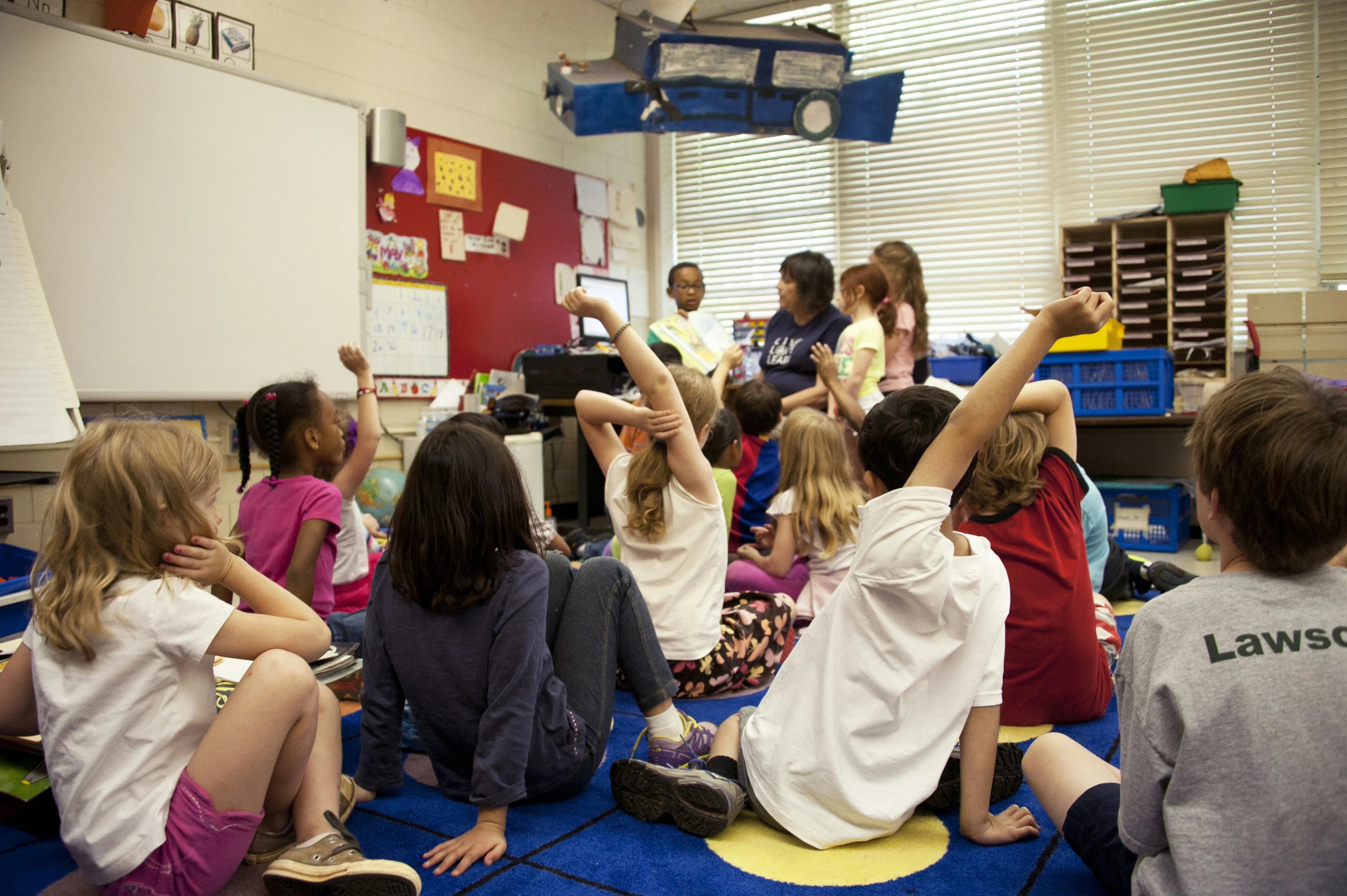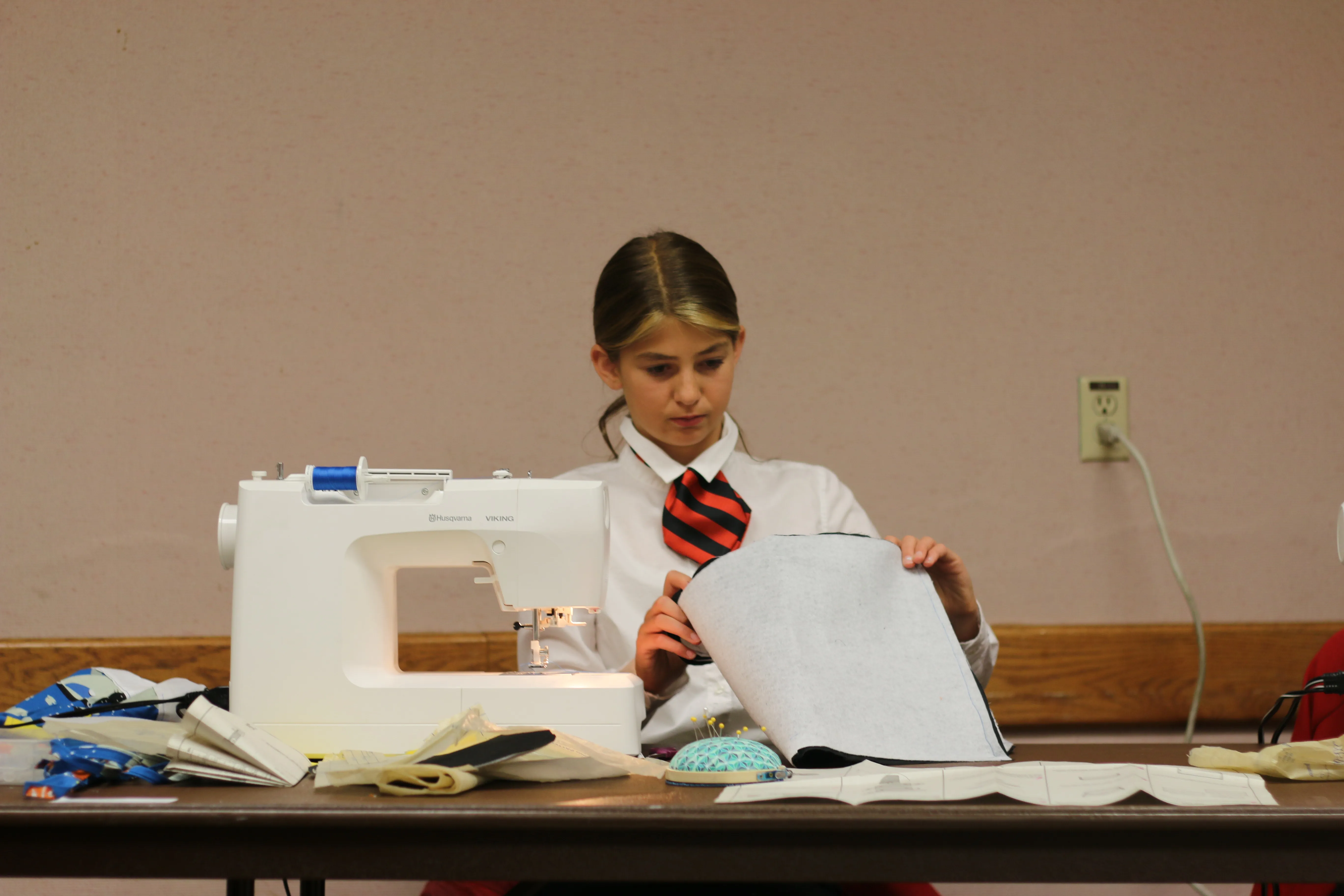
Lesson Plan Resources
Sample Lesson Plans
These lesson plans for FCS teachers are designed to help you introduce your students to the Family and Consumer Sciences (FCS) Educator career. The activities are designed to help students understand the opportunities, experience, education, and licensure for a career as an FCS educator.
FCS Educator Career Study Presentation
In recent years, FCS educator positions go unfilled and programs are lost because of the shortage of credentialed teachers. As an FCS Educator, you know all aspects of this career and you are the best person to pass on knowledge of this career to the future educators who are in your classroom today.
This set of lesson plans introduces learners to the Family and Consumer Sciences (FCS) Educator career. Learners use online information and communication sources and printedmaterials to research the opportunities, experience, education, and licensure for a career as an FCS educator. They also understand how FCCLA leadership development and competitive career development activities enhance academic preparation, promote career choices, and contribute to employment opportunities.
Please feel free to pick and choose activities from this set of lesson plans to fit the needs and time allowances of your program. It is recommended that the activities be presented as separate lessons with some time in between, maybe on transition days in between units.
Lesson 1 introduces the FCS Educator career and the importance of FCS education. You can download a printable PDF-version of the detailed lesson plan here, including links to all of the resources below. Activity 3 is the most important. The activities have the following main objectives:
- Activity 1 is meant to motivate interest in a career as an FCS Educator.
- Activity 2 introduces specifics about an FCS Educator, such as the subject matter taught, the educational settings, and career benefits.
- Activity 3 provides a basic understanding of how to become an FCS educator, including FCS education degrees and credentials. Please give your students the accompanying handout.
These resources were compiled by Teach FCS Task Force, sponsored by Family and Consumer Sciences, California Department of Education, and Family and Consumer Sciences Teachers Association of California (FCSTAC). Updated April, 2023
- Introduce the overall lesson, FCS Educator Career Study
- Explain that Career Technical Education courses expose learners to a variety of careers, but at this time, our nation needs teachers. And, there is a shortage of FCS educators.
- Explain that this lesson focuses on the FCS educator career.
- Show the video, "If Life is a Lab - FCS Educators are the Instructors", 3 minutes, linked below or accessed through www.fcsed.net.
- After the video, ask the students to turn to the person on their right to pair share this prompt: “Discuss with your partner one skill that prepares you for life, a skill that you learned from your FCS teacher in a course or through an FCCLA activity.”
- Explain that the learners will play the role of a school newspaper columnist. Their column is the “Career Corner” of the newspaper which features basic information about different careers each week.
- They will write their piece for the newspaper on the Career Corner assignment sheet. They will get information for their article from the Say Yes to FCS Fact Sheet.
During this activity, you are presenting detailed information about the pathways to becoming an FCS educator. Show one of two A-V tools which contain identical information about professional preparation: "G.O.A.T. – Become an FCS Educator – It’s a Great Career". A video version and a PowerPoint version are provided. There is a script for the teacher to read if the PowerPoint version is used. Hopefully, one or both of these can be made available to students as they complete the decision-making assignment.
Notice these key points during the video or presentation:
- The focus is on FCS Pre-Credential Single Subject Program Degrees from CSU Sacramento and CSU Northridge, the only two public California institutions that offer FCS education degrees.
- As outlined in the video (or PowerPoint), students can major in FCS-related degrees such as Child Development, Interior Design, Hospitality Management, etc., but will need to pass the CSET (California Subject Examinations for Teachers) to show FCS comprehensive subject matter competency if applying for a Home Economics (FCS) Single Subject credential program.
- CSU Northridge FCS Education Bachelor of Science degree holders need to also pass the CSET because CSUN no longer has a waiver with the Commission on Teacher Credentialing (Ca CTC). They are highly prepared for the CSET and pass easily because of the comprehensive nature of the FCS Education degree offered at Northridge.
- The presentation also includes basic information on the two credentials that authorize teaching in the three FCS industries: Home Economics (FCS) Single Subject Credential and the Designated Subjects CTE Credential.
- Note that the Home Economics (FCS) Single Subject Credential is most recommended because it authorizes the teaching of introductory, concentration, and capstone courses in all three industry sectors. Teachers with this credential have broader FCS subject mastery; therefore, more flexibility in their teaching assignment and are highly qualified for all FCS subjects. Today, nearly all FCS college degree programs require industry experience.
- Holders of the Designated Subjects CTE Credential are only authorized to teach concentration and capstone courses in the one industry sector designated on their credential. Depending on their level of education, D.S. holders might be placed on a different salary schedule, other than the one for educators with a Single Subject credential.
- Introduction - Spend a brief amount of time discussing the value of using a process to make decisions:
(The 7-step process model used in this activity is from the University of Massachusetts, Dartmouth, website),- Decision making is the process of selecting the best choices or options.
- Using a step-by-step decision-making process can help you make more deliberate, thoughtful decisions by organizing relevant information and defining alternatives.
- A decision-making process involves first identifying the decision, then gathering information, assessing alternatives, and finally narrowing to one choice.
- This approach increases the chances that you will choose the most satisfying alternative possible.
- Pass out the assignment sheet, “Career Quest – A Journey of Decisions”. Read aloud the assignment instructions at the top of the assignment sheet.
- Emphasize that students will fill in Steps 2 and 3 of the decision-making process after viewing the video (or PowerPoint). Explain that they may write brief notes during the video related to Steps 2 and 3 (on a separate sheet of paper).
- Pass out the informational handout, “High School Graduate: Steps to Become an FCS Educator”. Explain that this info sheet contains helpful information for Steps 2 and 3 of the decision-making process.
- Show the video or the PowerPoint, “G.O.A.T. – Become an FCS Educator – It’s a Great Career”.
- After the video/P Pt., give students time to fill in Steps 2 and 3 of the decision-making assignment. Please be available to answer clarifying questions as the details of professional preparation can be complicated.

Additional Lessons
Lesson 2 provides a multi-segment lesson plan in which students plan and present PSAs on the importance of teaching careers in FCS. Lesson 3 introduces Family and Consumer Sciences Education as a career pathway.
- Students will be able to create a PSA by recounting benefits of a teaching profession after researching and discussing the benefits of a teaching career.
- Student teams will engage in collaborative discussions of the the benefits of a teaching career using sentence structures and phrases to produce public service announcements.
- Students will be able to research and discuss opportunities in the career field of education.
- Students will be able to discuss and complete a scaffolded paragraph about possible careers in education using precise vocabulary.

